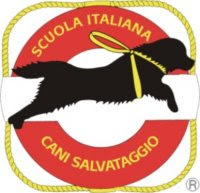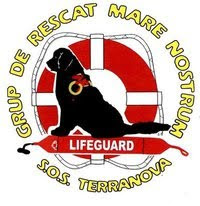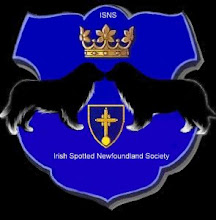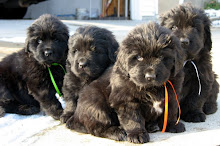Saturday, June 4, 2022
The Newfoundland - Swimming, Italy, And The Wonder of Dogs With Lynne Cox
(sierranevadaally.org)
"Lynne Cox has seen a lot over the more than 35 years as an amateur, record-setting long-distance and cold water swimmer. Cox has swum in places like the Bering Strait, the English Channel, and Antarctica, writing about it all along the way. Now, her newest book, Tales of Al: The Water Rescue Dog, brings the reader to the coast of Italy, where Cox traveled to Scuola Italiana Cani Salvataggio – the School of Italian Water Rescue Dogs – to meet with the dogs and the trainers who prepare them.
Published May 24, Cox is currently on a book tour to promote Tales of Al. She’ll be headed to Reno for an event at Sundance Bookstore on Wednesday, June 8 at 6pm. For a taste of what the June 8 reading will look like, take a look at the conversation I had with Cox about her travels to Italy, the writing process, and the wonders of dogs, below.
Claire Carlson (CC): Tales of Al’s first chapter is about your childhood and relationship with your childhood dog. Why did you choose to start this story here?
Lynne Cox (LC): I grew up in a swimming family. Everyone, including our family dog Beth, a Dalmatian, knew how to swim. We all spent hot summers at our grandparent’s cabin in Maine, swimming together. So I thought it was really important to show this early influence of swimming with dogs and how much fun it was and how much we loved to do it. My parents were so supportive and gentle with us in the water and made sure we felt safe and learned to coordinate our arms and legs and as we are able to gain strength they let go of us. They taught Beth the same way. So now years later, I’ve watched people work with children and adults learning to swim and dogs and I’ve seen people being taught or children or dogs taught in a rough way, in a way that often scares them where they’re just thrown into the water and expected to swim. And I really disagree with that. I don’t think you should terrify a child or adult or a dog. And so that was part of my reason for being intrigued with how the dogs are being trained at the School of Italian Water Rescue Dogs and how they are able to eventually become athletes that are involved in water rescue.
CC: Your next chapter goes to present(ish) day of you watching a video of a Newfoundland dog from the School of Italian Water Rescue Dogs jumping out of a helicopter to rescue someone. Shortly after watching this video, you booked a trip to Italy. Can you tell me a little bit more about that decision, which seems like such a huge thing to do so spontaneously?
LC: I saw this video and I watched it again and again and just marveled at the courage of these dogs, these Newfoundlands and – I later found out – it wasn’t just Newfoundlands, but Labradors and Golden Retrievers and German Shepherds and Leonbergers and Italian Spinones. How did they fly in helicopters and how did they learn this and how were they not afraid? I just started thinking, you know, I have to find out more about this. I was really intrigued. I’ve worked with athletes. I’ve been an elite athlete. I’ve coached swimmers who have had really bad experiences. And so I wanted to see if the dogs in Italy were being trained because they wanted to learn to swim, they wanted to participate or if they were being forced to do this. I also really admired the thought behind it of people spending time with their dogs to train them to help lifeguard and patrol the coast of Italy, and also Switzerland and Germany, which they go to as well. The video was an immediate inspiration because I love dogs, I love swimming, I love swimming with dogs, and I really wanted to see how they train the dogs at the school.
CC: You mentioned not agreeing with that fear-based approach to learning how to swim, and I think this message really comes through in the book. There’s a part where you talk about courage and what that means to different people, and how it was reflected in the dogs and trainers. Can you speak a little about this and the relationships you formed with the folks you met?
LC: There was this amazing amount of trust that had been established between the dogs and their owners. And part of that was from positive reinforcement, from being so consistent, from realizing that if a dog reached a certain skill but then didn’t understand what to do, they would then back away and not force the dog to reach the next level, because they might not get it and then fail. So the whole philosophy was about building on success, and that success built competence and companionship and trust between the owner and the dog. And so it was really fantastic to suddenly be welcomed into this group. It was like if you’re on a team, any sports team, and you’re suddenly welcome to join them. There’s a sense of how lucky I am to be here. And that’s how I felt in Italy with the people and the dogs from the school. They were eager to answer questions and show me what they were working on and what the dogs had learned and what the instructors or the owners were doing. For somebody who’s curious and wanting to know about cultures and about dogs and about the world, I just felt like oh my gosh, this was such a great idea to just follow curiosity and go to Italy and participate.
CC: I want to zoom out and talk more about the writing process involved in this. When you went to Italy, you met these amazing people, these amazing dogs. Did you go into the experience thinking this would make a great book? How did this all come about?
LC: Well, I actually was there about 10 years ago, and then I came back [to the U.S.] with the idea of okay, maybe I could write something about it. And then I started writing the book, and I didn’t like anything that I was doing. So I just put it aside and worked on other projects, other books. And then the pandemic happened and we had to isolate, and I started reflecting on how extraordinary the experience had been in Italy. And I just thought well, maybe this could be a story. So I started to write, and then it started reminding me of so many things in my life that related to it, and as I talked with my friends about it they mentioned things that had happened in their lives and how this story connected with them. And then I wrote the book.
CC: Lastly, I wanted to ask about the inspirations you drew from writing Tales of Al. The epigraph of the book is a line from Mary Oliver’s Dog Songs: “Because of the dog’s joyfulness, our own is increased. It is no small gift.” What influence has she had on your work?
LC: I love Mary Oliver’s poetry. I love the way she writes about dogs. I love what she writes about life and nature and hope. I’ve read a lot of her work and she reminds me a lot of Robert Frost, but I think she has a little bit more uplift to her poetry. She’s written a number of poems about dogs and I just thought what she expressed in that single sentence is the way so many of us who love dogs feel about dogs, how they multiply our joy and how that is not a little thing. It’s really a very special, almost miraculous thing, you know?"
Subscribe to:
Post Comments (Atom)










































No comments:
Post a Comment